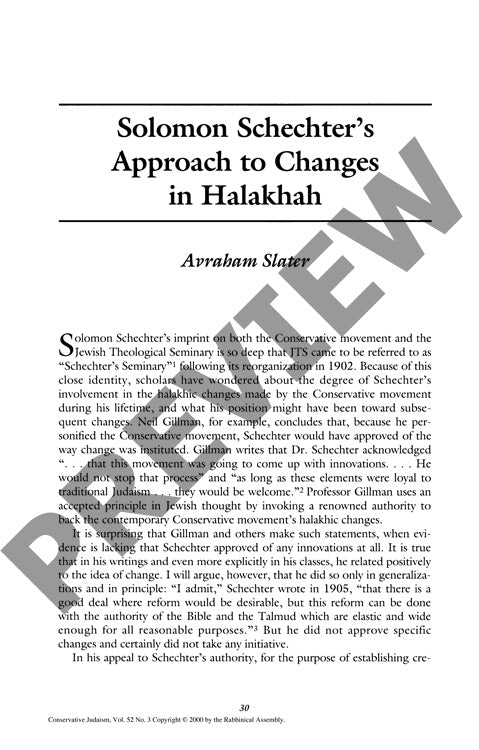Solomon Schechters Approach to Changes I
Couldn't load pickup availability
Solomon Schechter, founding chancellor of the Jewish Theological Seminary and intellectual architect of Conservative Judaism, left a complex and often misunderstood legacy regarding religious change. While contemporary Conservative leaders frequently invoke Schechter's authority to justify halakhic innovations, close analysis of his writings, correspondence, and institutional practices reveals a stark disconnect between his theoretical openness to evolution and his practical conservatism. Through examination of letters, speeches, and organizational documents from his Seminary presidency (1902-1915), a more nuanced portrait emerges: Schechter articulated carefully bounded support for halakhic flexibility while personally maintaining strict traditional observance, particularly regarding kashrut and Sabbath laws. His conception of "Clal Israel" as a mechanism for religious change demanded both broad communal consensus and genuine commitment to halakhic practice—prerequisites he found conspicuously absent in American Jewish life. The evidence suggests Schechter would have opposed many subsequent Conservative movement innovations, given his insistence on adherence to the Shulhan Arukh and rejection of changes driven by assimilationist pressures rather than authentic Jewish legal necessity. These findings challenge the historical basis for attributing Conservative movement changes to Schechter's influence, indicating such innovations warrant evaluation on their theological merits rather than claimed historical precedent.

More Information
-
Physical Description
-
Publication Information
Published 2000
ISBN
-
Publication Credits
Avraham Slater

